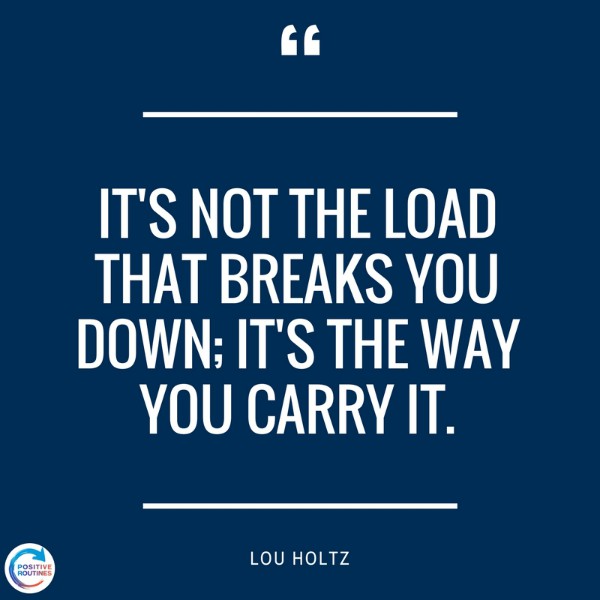Overview
Being a project manager is a big deal – always having to be on top of everything, and even ahead at times. One big responsibility is being in charge of planning – outlining all the work to be done for a project.
Assumptions
Not everyone knows exact specifications, especially when plans are prone to change. A project manager is to make assumptions on factors both inside and outside of the control of the company. These assumptions can be explicit or implicit, and critical or noncritical. An example is five people are needed for a project, and the implicit assumptions are that they are to be working on the project full-time and have the necessary skills needed. Some project managers may not even realize every assumption to be made. No matter the assumption, a project manager is to document all of them to track change throughout the project.
Success and the Life Cycle
To make sure these objectives can achieve success, the SMART principle is to be followed – Specific, Measurable, Attainable, Realistic or Relevant, and Tangible or Time-bound.
The statement of work, project specification, milestone schedule (start and end date, customer approval), and work breakdown structure make up the life cycle of a project, and make sure it can continue as planned. An early action is a kickoff meeting, giving an overview of the project, including the definition of success, scope, and assumptions.
Failures and Ending
Sometimes a project does not go as intended. Poor estimates, not enough employees, or lack of motivation can be causes. Despite all this, project managers are to go through with analyzing performance, keeping to the schedule and scope, as well as making sure employees are doing okay.
Scheduling and Management
Schedules help project managers follow guidelines and keep with time constraints. They also help in communicating, keeping cost low, using resources wisely, and ensuring the least amount of risk. Three key documents for these are listed below.
- Master production schedule – noting what is made and when, number of units, and objectives to measure performance and data, as well as coordinating finances
- Project plan – document of activities; states how to prevent conflict, communication tools, and what to do about inconsistencies
- Project charter – states risks, scope, what the product is, and conditions that define the project
Throughout the project, project managers are to verify (accept) and validate (quality meets requirements) work. Baselines, configuration management, and project audits help measure performance; improve communication and reduce confusion; and assist in decision making, respectively.
Takeaway
A project manager has to balance people, time, and resources. Documents can help break these things down and ease the processes, but they are not the entirety of it. A good project manager might not know everything, but they keep realistic expectations and make sure to follow through with what is written, even if times get tough.


8 Comments
Trisha Badlu · February 22, 2021 at 4:34 pm
Great job in explaining the importance of planning. While planning projects are important, it’s impossible for a project manager to account for all the unknowns. Because of this, project managers need to be able to handle the mindset of knowing there’s something that might not go as planned while completing the project. This is because being paranoid that there’s something they didn’t consider or there isn’t a countermeasure for certain consequences can lead them to spend too much time on planning and leaving very little time for implementation and testing.
Autumn Coulton · February 23, 2021 at 7:27 am
Good detail on the documentation for planning and why it is necessary to a project manager. Documentation is essential because it allows the project manager to look back on certain details in order to make an ultimate decision. Proper documentation will help the project manager to keep track the progress more easily and limit the possible failures they may encounter. Although this may help the project manager to understand possible issues, documentation alone will not fix all problems. Because of this, I think you made a good point at the end by noting to keep realistic expectations.
Sean Kinneer · February 23, 2021 at 12:47 pm
Awesome article, Brandon! I like how you organized everything and explained the importance of planning. Project managers have to juggle a lot of different things to make sure the team can meet its end goals and provide a product or service that the client is going to be happy with. I think it important as you said for project managers to make assumptions for both inside and outside the control of the team. Planning ahead for change helps avoid being blindsided and unprepared. The SMART principle is easy to remember when trying to make intelligent decisions. No matter if things are going in a positive or negative direction, the project manager still needs to continue forward with their organization. Preparing the essentials, such as the statement of work, scope, milestone, work, and master production schedules, project charters, and project plans are all things that can help the project manager have a set of guidelines to refer back to. The project manager job is the most important to getting things started, moving along while meeting deadlines, keeping the team happy and motivated, and ultimately finishing on time.
Savannah Swartzel · February 23, 2021 at 2:12 pm
“A project manager has to balance people, time, and resources.”
I think there is no truer statement. The basis of a project falls onto the project manager’s hands and if the project fails it is usually blamed on the project manager’s ability to manage the project. I also never thought of but agree with the fact that a project manager always makes assumptions on every aspect of the project. Assumptions are a dangerous thing to a project, it’s always a good idea to confirm an assumption than to allow a false assumption to continue to pass on.
Vivian Azar · February 23, 2021 at 2:45 pm
Nice emphasis on the realities of project planning and the possibility of experiencing failures. Project managers should keep an open mind and be willing to accept the possibility of things going wrong so that they can better prepare themselves in the event that something occurs off schedule. Projects vary so there is no “one size fits all” project plan, but project managers who are vigilant and who learn from past mistakes will serve well on future projects.
Brandon Sutton · February 23, 2021 at 4:40 pm
Great write-up on the topic of planning, Brandon. One section that resonated with me was the SMART principle that project managers use to gather all the abstract, working parts of a project into one cohesive goal. One thing I liked hearing about within SMART is the ‘kickoff meeting’ where everybody is caught up to speed and all the various technicalities of the project are made very clear and concrete. I know in my experience of the Software Engineering course that my team would take small things for granted, or “eyeball” it, and we would waste more time than we thought we were saving by backtracking and correcting things. Better to plan ahead!
Griffin Nye · February 23, 2021 at 5:27 pm
This article greatly organized and explained in detail the importance of good project planning. I especially agree with how you mentioned great project managers must do their best to consider any and all factors that may delay or affect the schedule of the project. I find this skill to be extremely important when it comes to planning and managing a project, as unexpected events are bound to appear throughout the life of the project. If these extenuating circumstances are not properly accommodated and some extra leeway is not taken into consideration during the creation of the project schedule, the project can take a hard turn very quickly.
Manogna Pillutla · February 23, 2021 at 5:50 pm
Good one Brandon! I like the way you focused the topic relating it to project manager’s role. Practically, project manager is the actual backbone of project process and your post clearly explains that.